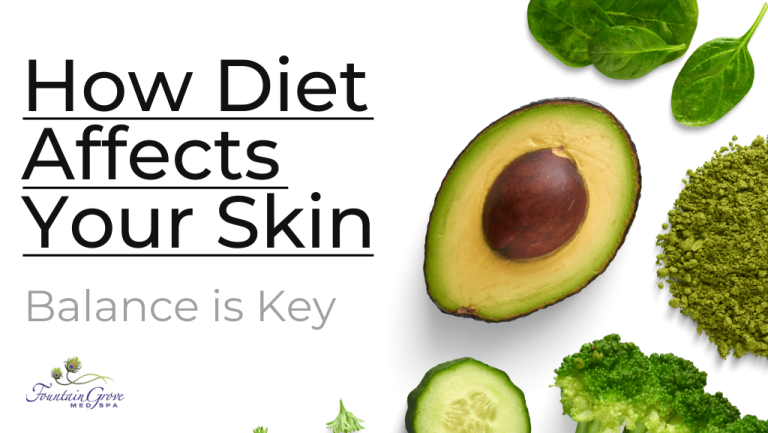How Diet Affects Your Skin Health
Your skin is the largest organ of your body, and just like your heart or brain, it needs the right nutrition to stay healthy. While skincare products can help improve your appearance from the outside, what you eat has a much deeper and long-lasting impact. At Venzec-icu, we believe that a balanced diet is powerful for glowing, youthful skin.
The Connection Between Diet and Skin
The food you consume provides essential vitamins, minerals, and antioxidants that influence how your skin looks and feels. A poor diet filled with processed foods, excess sugar, and unhealthy fats often leads to dullness, acne, premature aging, and even conditions like eczema. On the other hand, nutrient-rich foods help your skin stay hydrated, elastic, and radiant.
Scientists and dermatologists agree that nutrition plays a crucial role in skin health. Your diet impacts inflammation, collagen production, hydration levels, and the body’s ability to repair itself. If your skin feels dry, oily, or prone to breakouts, it may be a sign that your body is missing essential nutrients.
Nutrients That Benefit Skin Health
1. Vitamin C
Vitamin C is one of the most important nutrients for skin health. It helps your body produce collagen, which keeps your skin firm and youthful. Foods rich in vitamin C, like oranges, strawberries, kiwis, and bell peppers, also protect your skin from free radicals that cause aging.
2. Vitamin E
Vitamin E is a strong antioxidant that shields your skin from sun damage and pollution. Nuts, seeds, spinach, and avocados are excellent sources of this nutrient. Regular intake of vitamin E can reduce wrinkles and keep your skin soft.
3. Omega-3 Fatty Acids
Omega-3s are healthy fats found in salmon, walnuts, chia seeds, and flaxseeds. They help maintain your skin’s natural oil barrier, keeping it hydrated and preventing dryness. Omega-3s also reduce inflammation, which can help with acne and redness.
4. Zinc
Zinc supports skin repair and regulates oil production. A deficiency in zinc often leads to acne and delayed wound healing. Foods rich in zinc include pumpkin seeds, chickpeas, lentils, and whole grains.
5. Water
Though not a nutrient, hydration is vital for skin health. Drinking enough water keeps your skin plump, elastic, and free from dryness. Herbal teas and water-rich fruits like watermelon and cucumber also contribute to hydration.
Foods That Harm Skin Health
While some foods nourish your skin, others can harm it.
- Sugary Foods: Excess sugar increases insulin levels, which may lead to acne breakouts and premature aging.
- Processed Foods: Chips, fast food, and packaged snacks often contain trans fats and too much salt, both of which can damage skin health.
- Dairy: Some people notice that milk and cheese can trigger acne due to hormones and proteins found in dairy products.
- Fried Foods: These foods can increase oil production in the skin and cause clogged pores.
How Diet Impacts Common Skin Issues
Acne
A diet high in sugar and dairy is often linked to acne. By cutting down on these foods and increasing your intake of fruits, vegetables, and omega-3 fatty acids, you may notice clearer skin.But for better results you have to use Natural Remedies for Acne .
Dry Skin
Lack of hydration and healthy fats can leave your skin dry and flaky. Adding foods like avocados, olive oil, and fatty fish helps restore moisture.
Aging
Collagen levels decrease with age, but eating vitamin C and protein-rich foods can support collagen production. Antioxidants from berries, nuts, and green tea help fight wrinkles and fine lines.If you are facing Aging and want a best solution then must visit this article , Anti-Aging Skincare Routine .
Eczema and Psoriasis
These conditions are often worsened by inflammation. An anti-inflammatory diet that includes omega-3s, whole grains, and green vegetables can help reduce flare-ups.
Practical Tips for a Skin-Friendly Diet
- Eat the rainbow – Include a variety of colorful fruits and vegetables to ensure you get different vitamins and antioxidants.
- Choose healthy fats – Replace fried and processed oils with olive oil, avocados, and nuts.
- Stay hydrated – Aim to drink 8–10 glasses of water daily.
- Cut back on sugar – Reduce sweetened drinks, candies, and pastries.
- Balance your meals – Combine proteins, healthy fats, and complex carbohydrates for long-lasting energy and skin nourishment.
The Role of Lifestyle
While diet plays a major role, your overall lifestyle also affects skin health. Getting enough sleep, managing stress, and exercising regularly improve blood flow and help your skin repair itself. Smoking and excessive alcohol, on the other hand, speed up the aging process.
Final Thoughts
Healthy skin starts from within, and your diet is the foundation. Eating nutrient-rich foods, staying hydrated, and avoiding harmful ingredients can completely transform the way your skin looks and feels. Remember, glowing skin is not just about expensive creams or treatments—it’s about nourishing your body with the right fuel. At Venzec-icu, we encourage you to take small, consistent steps toward better nutrition because what you eat truly

